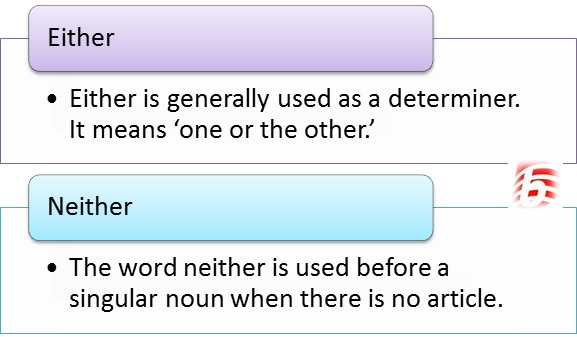Either vs Neither
Understanding the distinction between either and neither is crucial, as they are two words with different meanings and usage. Either has its origins in Old English, while neither comes from Middle English. Both words are utilized in various phrases in the English language, such as either way, neither here nor there, and neither one thing nor the other. Furthermore, either can function as a conjunction, adverb, determiner, and pronoun, while neither can serve as a determiner, pronoun, and adverb.
What does Either mean?
Either is most commonly used as a determiner, meaning “one or the other.” For example: “Please come either on Tuesday or Wednesday.” In this sentence, either is used as a determiner in the sense of “one or the other.” Sometimes, either is used as a pronoun, either alone or with the preposition “of.” For example: “I would like to have either” or “Has either of his brothers called on you?” In both instances, either functions as a pronoun. Additionally, either can be used to mean “too” or “also,” as in the sentence: “I can’t either,” in response to “I can’t climb,” which means “I cannot climb too.”
What does Neither mean?
Conversely, neither is used before a singular noun without an article. Keep in mind that when using neither, you should employ a singular verb. For example: “Neither book contains the answer” or “Neither car is expensive.” In both sentences, neither is used with a singular noun and paired with a singular verb. Neither is frequently used in conjunction with “nor,” as in the sentence: “Neither Francis nor Phillip was at home when I went.” The use of neither followed by nor conveys the absence of both Francis and Phillip.
Key Takeaways
- Either is mainly used as a determiner, meaning “one or the other,” and can also function as a pronoun or to indicate “too” or “also.”
- Neither is used before a singular noun without an article, and should be paired with a singular verb in a sentence.
- Neither is often used in conjunction with “nor” to convey the absence of both subjects in a sentence.
